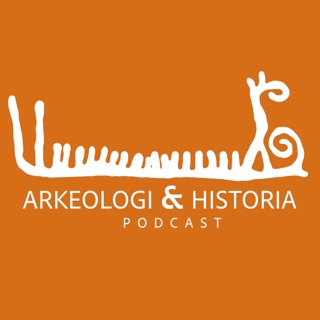
Money, Lies, and God
Michael and Katherine Stewart discuss the rise of religious nationalism in America, its impact on public education, and the broader implications for democracy. They explore the strategies employed by religious groups to infiltrate public schools, the culture wars surrounding education, and the divisive nature of the New Right. Katherine Stewart is the author of The Power Worshippers: Inside the Dangerous Rise of Religious Nationalism, the award-winning book upon which the documentary feature, God & Country, produced by Rob Reiner, is based. She has covered the intersection of faith and politics for over 15 years. Her new book is Money, Lies, and God.
11 Mars 1h 37min

Who Counts? Ethics in the Treatment of Animals and AI
Michael Shermer and Jeff Sebo explore moral philosophy, focusing on animal rights, sentience, and consciousness. They discuss the definitions of morality, ethical pluralism, and the divide between consequentialism and deontology. The conversation examines who belongs in our moral circle, the ethics of insect farming, the future of animal agriculture, abortion, and whether advanced AI could be considered sentient beings or even co-citizens.
8 Mars 1h 27min

New Research on The Evolution of Intelligent Life
The guests today are co-authors of a new paper in Science Advances titled: “A reassessment of the ‘hard-steps’ model for the evolution of intelligent life.” Jennifer Macalady is a Professor of Geosciences at the Pennsylvania State University. Her research is focused on microbial ecology and evolution, and interactions between microorganisms and Earth materials like minerals and water through geologic time. Daniel B. Mills is a postdoctoral researcher in the Orsi Geomicrobiology Lab at The University of Munich in Germany. His research focuses on the co-evolutionary history of Earth's surface environment and eukaryotic life—a topic he approaches by studying modern marine organisms and environments. He also applies this research to the ongoing search for exoplanetary biosignatures and technosignatures. Shermer, Mills, and Macalady discuss the Hard Steps model of the evolution of intelligent life, the Drake Equation, the Fermi Paradox, the Great Filter, and the Great Silence. They also cover the Rare Earth hypothesis, major transitions in evolution, the uniqueness of humans, and the search for biosignatures and technosignatures.
2 Mars 1h 12min

Sex Work, Ethics, and Evolutionary Psychology: What REALLY Happens on Sugar Daddy Websites?
What is a sugar daddy, really? The answer might disturb you. Brook Urick takes us into the shadowy world of sugar dating, where young women are lured into dangerous situations under the guise of financial security. From being a would-be sugar baby to becoming the public face of SeekingArrangement, Urick unveils the unsettling truth about these platforms and their role in enabling predatory behavior. Urick’s revelations go beyond personal experience. She exposes how these websites intentionally protect exploiters, with their founder even caught in a sting operation attempting to meet a minor. With the passage of FOSTA-SESTA in 2018, making these platforms criminally liable, she questions why they still exist. Her goal? To bring public awareness and legal scrutiny to an industry built on deception and harm. Shermer and Urick discuss the realities of sugar dating, the blurred lines between sex work and exploitation, and the psychology of men and women in the industry. They explore legal and ethical debates, feminist perspectives, and societal consequences of prostitution and pornography. Urick shares her experiences at SeekingArrangement, including the dangers young women face and the website’s role in fostering systemic abuse and deception.
18 Feb 1h 45min

Half a Thousand Episodes: Still Chasing Truth
In our 501st episode, Michael Shermer takes a moment to reflect on his long journey with skepticism and what he learned recording half a thousand episodes of this podcast. He shares his thoughts on what it means for something to be truly “real” by comparing our personal experiences with evidence-backed facts, tackles the challenge of controversial and extraordinary claims, and even explores how mystical ideas or literary works can offer their own kind of truth.
11 Feb 37min

The Faith Deficit: Does America Need a Spiritual Backbone?
What happens to American democracy if Christianity is no longer able, or no longer willing, to perform the functions on which our constitutional order depends? Jonathan Rauch—a lifelong atheist—reckons candidly with both the shortcomings of secularism and the corrosion of Christianity. Thin Christianity, as Rauch calls the mainline church, has been unable to inspire and retain believers. Worse, a Church of Fear has distorted white evangelicalism in ways that violate the tenets of both Jesus and James Madison. What to do? For answers, Rauch looks to a new generation of religious thinkers, as well as to the Church of Jesus Christ of Latter-day Saints, which has placed the Constitution at the heart of its spiritual teachings. In this timely critique Rauch addresses secular Americans who think Christianity can be abandoned, and Christian Americans who blame secular culture for their grievances. The two must work together, he argues, to confront our present crisis. He calls on Christians to recommit to the teachings of their faith that align with Madison, not MAGA, and to understand that liberal democracy, far from being oppressive, is uniquely protective of religious freedom. At the same time, he calls on secular liberals to understand that healthy religious institutions are crucial to the survival of the liberal state. Jonathan Rauch is a senior fellow in the Governance Studies program at the Brookings Institution in Washington DC and a contributing writer of The Atlantic. His new book is Cross Purposes: Christianity’s Broken Bargain with Democracy.
4 Feb 1h 29min

The Psychology of Serial Killers
Dr. Rachel Toles, a licensed forensic psychologist, delves into the psychology of criminals, addressing the motivations behind some of the world’s most notorious killers. Her expertise spans trauma, addiction, and impulse control, culminating in her upcoming U.S. theater tour, The Psychology of a Murderer. Through captivating case studies, Toles sheds light on the dark corners of human behavior. In her show and forthcoming book, Toles examines the pathways leading ordinary people to commit extraordinary violence. She explores infamous cases, including Jeffrey Dahmer and Charles Manson, while revealing a proprietary formula for understanding evil. Her work intertwines cutting-edge psychology with gripping storytelling, leaving audiences both disturbed and enlightened. Shermer and Toles discuss the psychology of mass murderers, causes of evil, and the fascination with true crime. They analyze infamous killers like Dahmer, the Menendez Brothers, and Manson, exploring traits like narcissism and psychopathy. Topics include experiments like Milgram’s and the Stanford Prison Study, factors driving violence, and why ordinary individuals can commit atrocities.
28 Jan 1h 59min

What if Death Isn’t the End? The Science of Forever
Just as surgeons once believed pain was good for their patients, some argue today that death brings meaning to life. But given humans rarely live beyond a century (while certain whales can thrive for over two hundred years) it’s hard not to see our biological limits as profoundly unfair. No wonder then that most people nearing death wish they still had more time. Yet, with ever-advancing science, will the ends of our lives always loom so close? Ariel Zeleznikow-Johnston is a neuroscientist at Monash University, Australia, where he investigates methods for characterizing the nature of conscious experiences. His research interests range from the decline, preservation and rescue of cognitive function at different stages of the lifespan.
21 Jan 1h 30min




















